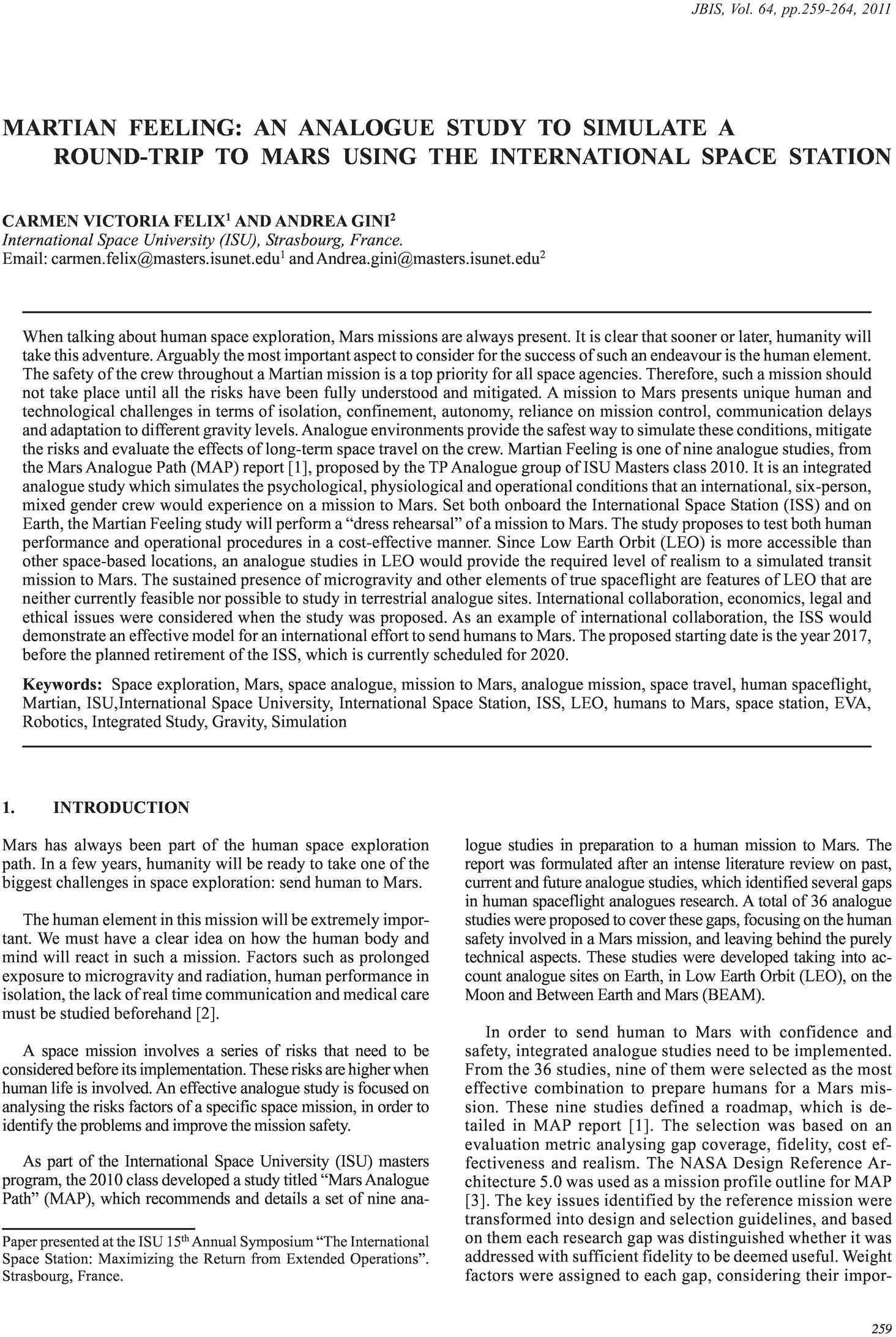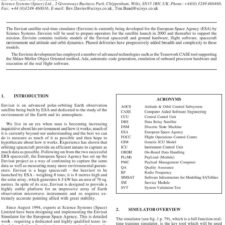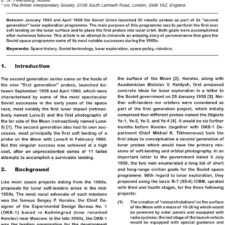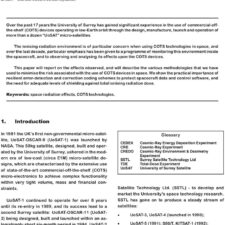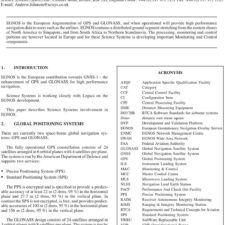Martian Feeling: An Analogue Study to Simulate a Round-Trip to Mars using the International Space Station
£5.00
C. V. Felix; A. Gini (2011), JBIS, 64, 259-264
Refcode: 2011.64.259
Abstract:
When talking about human space exploration, Mars missions are always present. It is clear that sooner or later, humanity will take this adventure. Arguably the most important aspect to consider for the success of such an endeavour is the human element. The safety of the crew throughout a Martian mission is a top priority for all space agencies. Therefore, such a mission should not take place until all the risks have been fully understood and mitigated. A mission to Mars presents unique human and technological challenges in terms of isolation, confinement, autonomy, reliance on mission control, communication delays and adaptation to different gravity levels. Analogue environments provide the safest way to simulate these conditions, mitigate the risks and evaluate the effects of long-term space travel on the crew. Martian Feeling is one of nine analogue studies, from the Mars Analogue Path (MAP) report [1], proposed by the TP Analogue group of ISU Masters class 2010. It is an integrated analogue study which simulates the psychological, physiological and operational conditions that an international, six-person, mixed gender crew would experience on a mission to Mars. Set both onboard the International Space Station (ISS) and on Earth, the Martian Feeling study will perform a “dress rehearsal” of a mission to Mars. The study proposes to test both human performance and operational procedures in a cost-effective manner. Since Low Earth Orbit (LEO) is more accessible than other space-based locations, an analogue studies in LEO would provide the required level of realism to a simulated transit mission to Mars. The sustained presence of microgravity and other elements of true spaceflight are features of LEO that are neither currently feasible nor possible to study in terrestrial analogue sites. International collaboration, economics, legal and ethical issues were considered when the study was proposed. As an example of international collaboration, the ISS would demonstrate an effective model for an international effort to send humans to Mars. The proposed starting date is the year 2017, before the planned retirement of the ISS, which is currently scheduled for 2020.

